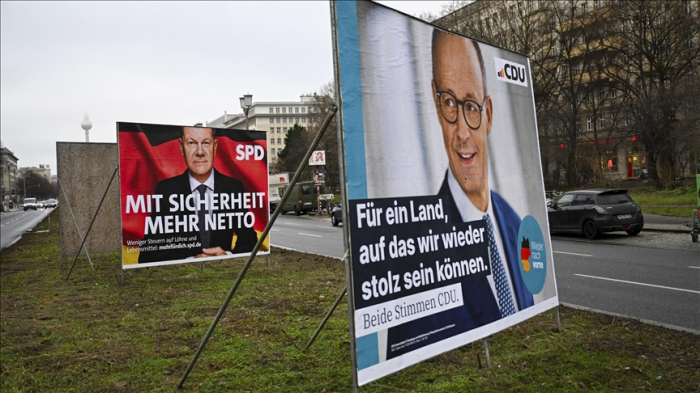Conservative leader Friedrich Merz and his CDU/CSU bloc have fallen to 28% – their worst polling performance this year – according to the latest survey by public broadcaster ZDF.
The far-right AfD has consolidated its position as the country's second-strongest political force, reaching 21% support by adding one percentage point. The anti-immigrant party maintains its strongest support base in the ex-communist East German states.
Chancellor Olaf Scholz's Social Democratic Party (SPD) remains at 16% – a figure that would mark the party's worst electoral performance since 1949. Their coalition partners, the Greens, hold steady at 14%.
The socialist Die Linke party looks set to clear the 5% threshold with 8% support, while both the liberal Free Democrats (FDP) and the newly formed BSW stand at 4.5%, facing possible exclusion from parliament.
Adding to the uncertainty, more than a quarter of eligible voters (27%) remain undecided just days before the crucial vote.
Based on projected parliamentary seat distribution, analysts anticipate a coalition between the Christian Democrats (CDU/CSU) and the center-left SPD as the most likely outcome. However, if the smaller parties – Die Linke, FDP, and BSW – all secure seats in parliament, the CDU/CSU would need to form a three-party coalition. Such a scenario would likely lead to extended coalition negotiations.
AzVision.az
More about:
















































